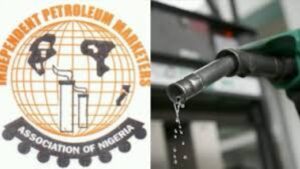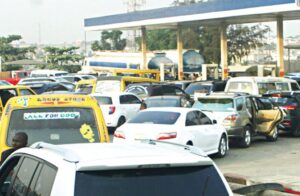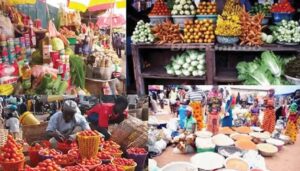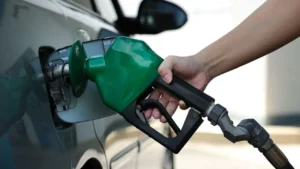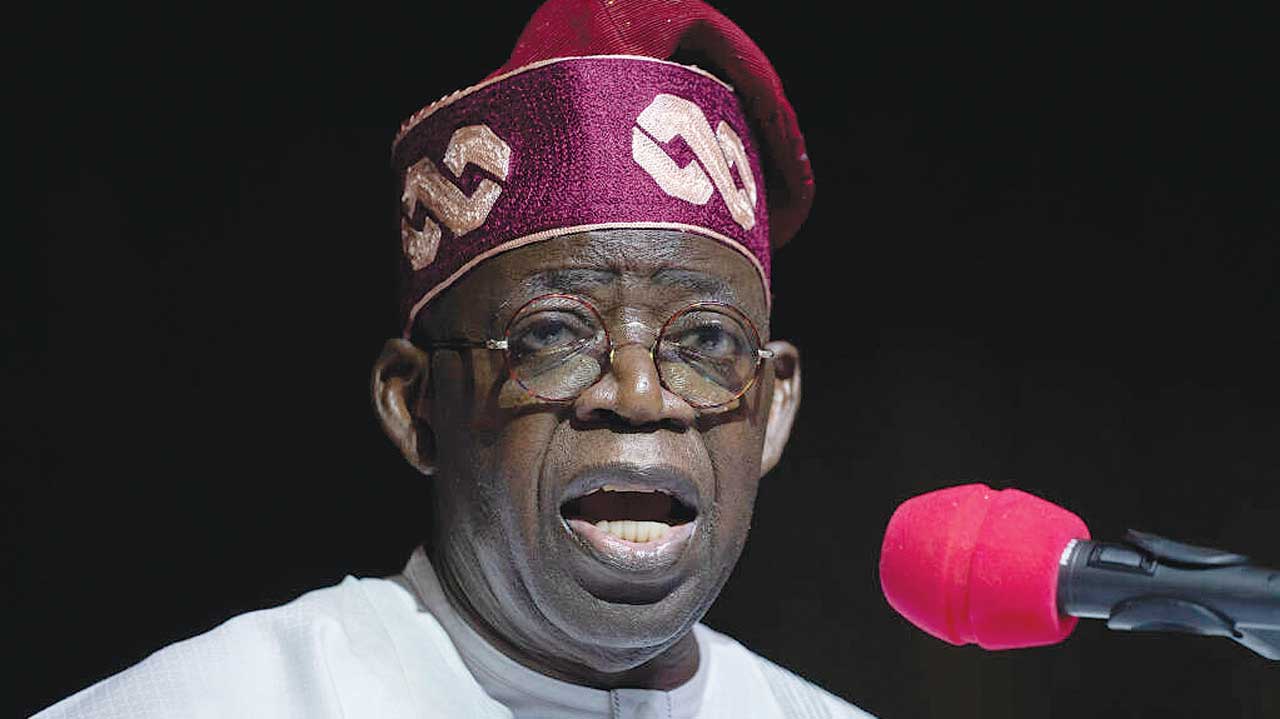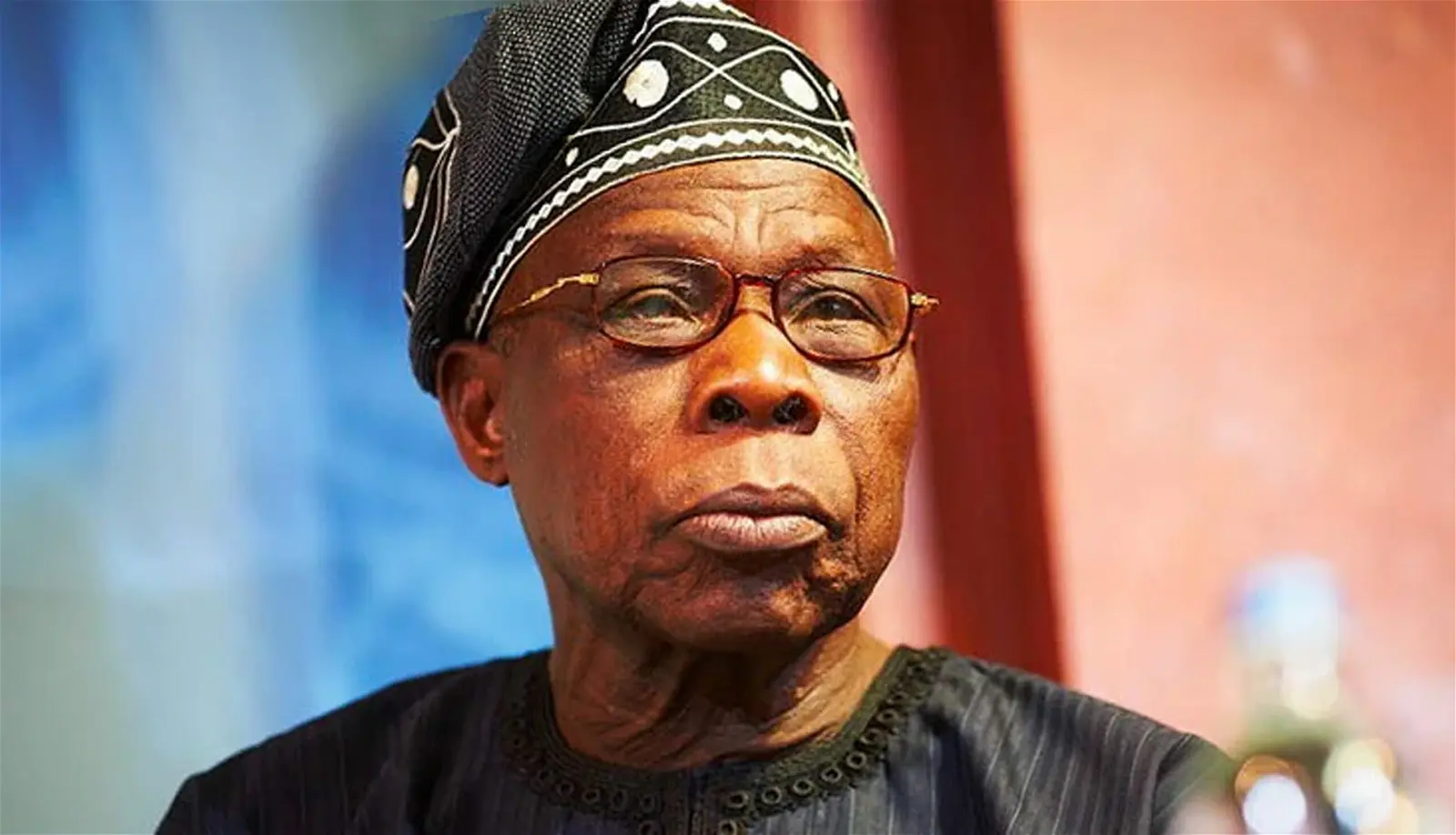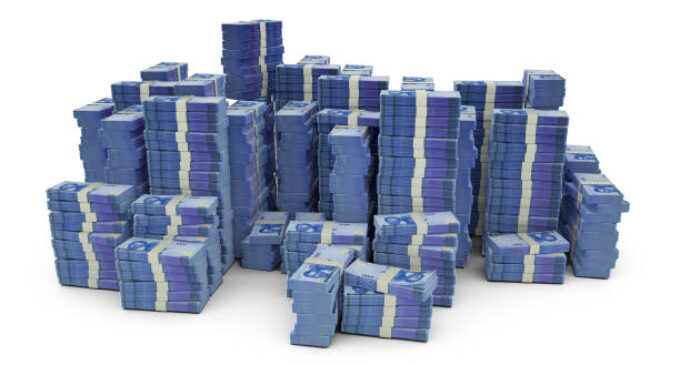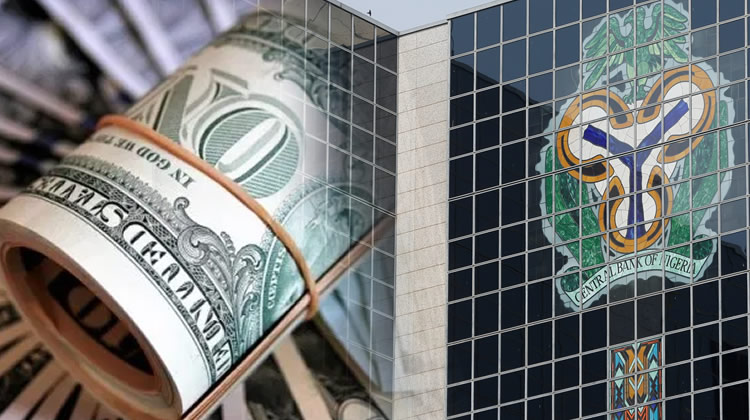N1,030/L: NLC demands reversal as fuel queues resurface
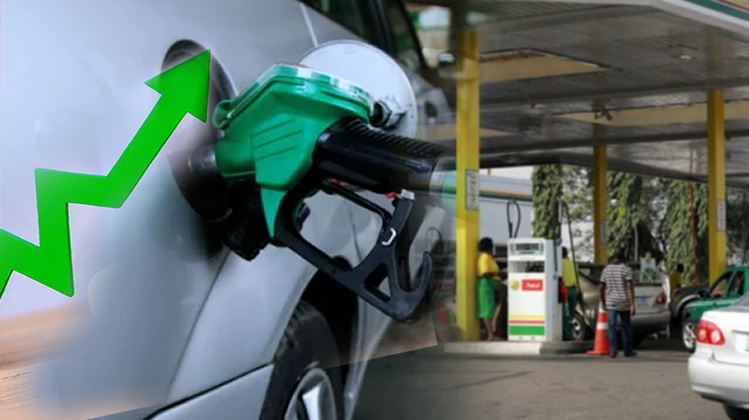
The Nigeria Labour Congress and the Organised Private Sector have called for the immediate reversal of the hike in the pump prices of Premium Motor Spirit, popularly called petrol, by the Nigerian National Petroleum Company Limited.
Retail stations of NNPC raised the price of petrol to N1,030 from N897/litre in Abuja, and in Lagos it was hiked to N998/litre from N868/litre. Other locations witnessed similar price hikes, a development that triggered anger among Nigerians.
The price hike, the second in one month, represents about 14.8 per cent or N133 rise.
With the latest price adjustment, it means that in the less than 17 months of the current administration, the price of petrol has risen by over 430 per cent from May 29, when it took over the reins of power.
Last month, the national oil company raised the pump price of petrol to N897/litre from the official price of N617 per litre it hitherto sold in Abuja.
It came days after the NNPC said it was heavily constrained by the huge debt it owed international suppliers. The debt is estimated to be $6.8bn.
At the NNPCL mega station in Central Area, a customer told The PUNCH that the product was sold at N1,030.
The station did not display its prices on either the signboard or the pump meter, leaving customers unaware of the cost of fuel.
Instead, the new price was announced verbally by the fuel attendants, against best practices.
“I am very angry right now. I entered this station thinking their price would be better. It was only after I had wasted time in the queue that I was informed by the fuel attendant that the price had risen to N1,030,” the customer said.
This development comes days after the NNPC decided to terminate its exclusive purchase agreement with Dangote Refinery, giving room for other players downstream to buy products directly from the Dangote Refinery.
Oil marketers said NNPC’s withdrawal as the sole off-taker of petrol from Dangote refinery meant the Federal Government had systematically stopped subsidy on petrol completely.
It also meant the product would be sold to marketers on a willing buyer, willing seller basis.
The price jumped to as high as N1,200/litre in some other stations in Abuja. For instance, customers bought petrol from one of the Eterna stations in the city centre at N1,200/litre. Mobil station at Arab junction sold to its customers at N990/litre while all NNPCL stations along with Berger didn’t display its pump price.
Efforts to reach the NNPCL proved abortive as its spokesman, Femi Soneye, didn’t respond to calls to his phone lines.
Meanwhile, drivers and transporters raised the cost of fares after the petrol price hike by NNPCL and other dealers.
One of our correspondents observed that a one-way trip from Lugbe to Wuse in Abuja had increased to N1,000 from N700 previously charged.
Also, transport cost moved as fuel price hit N1,250 per litre in Borno State.
The PUNCH learnt that many filling stations, including the NNPC retail outlets, were shut down while those selling currently placed their price on N1,250 per litre.
Commercial fuel stations sold at N1,100 per litre with many stations also shut down, which caused artificial scarcity of the commodity in Katsina State. The pump price in Ilorin, Kwara State, as of Wednesday evening at NNPC stations was N1,045. At Orange Global filling station it was N1,300; Rainoil dispensed at N1210, while Total sold it at N1,210.
In Edo, most marketers sold for N1,250 per litre, it was in Delta for between N1,100 and N1,200 per litre and N1,200 to N1,250 per litre in Benue.
In Abia, fuel sold for N1,200 and N1,300, while in Yobe, NNPC sold for N1,098 and others between N1,150 and N1,170 per litre
Most stations in Ondo sold for between N970 and N1000 in the morning but changed to N1,115 in the evening.
NLC, OPS kick
The Nigeria Labour Congress condemned the hike in petrol price nationwide. The union also demanded an immediate reversal of the hike while accusing the government of only focusing on fuel price increments.
The NLC, in a statement signed by its president, Joe Ajaero, described the decision of the NNPCL as an aberration.
Ajaero stated, “Even following the logic of market forces, we find it an aberration that a private company (NNPCL) is the one fixing prices and projecting itself as a hegemonic monopoly.
“We challenge the government to go to the drawing board and present us with a blueprint for inclusive economic growth and national development instead of this spasmodic ad holism and palliative policy.
“It needs no stating the fact that the latest wave of increase has grossly altered the calculations of Nigerians once again at a time they were reluctantly coming to terms with their new realities.
“It will further deepen poverty as production capacities dip, more jobs lost with multidimensional negative effects. In light of this, we urge the government to immediately reverse this rate hike as previous increases did not produce any good results. People only got poorer.
“But more fundamentally, the government should be bold enough to tell Nigerians in advance the destination it wants to take the country.”
The Organised Private Sector also condemned the development. The Director-General of the Manufacturers Association of Nigeria, Segun Ajayi-Kadir, said the hike it would further drive up the cost of production for manufacturers.
He said, “The second increase in one month will send high costs across the value chain for the manufacturer. In terms of the distribution of our products, it means that we are going to pay much higher for it and this will of course impact the prices at which our locally produced items will go.”
The MAN DG said the PMS price hike does not bode well for the average Nigerian whose disposable income shrinks daily, resulting in fewer purchases but faces increasing transportation costs.
“Together with the fact that the disposable income of the average Nigerian has dropped, we are likely to witness a further dip in our sales figures,” Ajayi-Kadir said. “For some small and medium scale enterprises that use diesel in their processes, it is going to be an increase in costs.
“Additionally, workers who make trips are likely to request another raise to allow them to transport themselves to work. Since people will spend more on transport, it reduces the money they spend on other goods, whereas we need more purchases to support more production.”
The MAN DG noted the NNPC’s new PMS price could lead to another low in the business environment, but hoped that over time there would be a moderation in PMS prices as he recommended the Federal Government incentivise petrol cost reduction.
He added, “We already have a huge advantage in Dangote Refinery coming on stream and doing the local supply. It is a welcome development and we are very proud of that as an indigenous producer in our history.
“We are looking forward to how the government would deliberately incentivise the reduction of the cost of petrol. When we subsidised imported petrol, we could say we were subsidising consumption.
“But if arrangements could be made so that Dangote, for instance, would get crude at reduced costs, it could be a way of giving subsidy to Nigerians, but you would be subsidising production, which would be for the overall well-being of Nigerians.
“So, I believe that kind of arrangement, particularly if we intentionally and diligently increase our oil production, would be something that may have to be considered as we continue to find solutions to the rising costs of petroleum products collectively.”
The Director, Centre for Promotion of Private Enterprise, Dr Muda Yusuf, described the latest increase in PMS price as regrettably ill-timed and failed to reckon with the prevailing difficult economic conditions.
“There is always a place for political economy in the interest of the vulnerable segments of society,” Yusuf said. “The Nigerian economy is not ripe for full-blown deregulation and market principles on all fronts.”
Yusuf recommended policy sequencing as a better path, noting it would have been better if the Economic Stabilisation Bill expected to bring relief to the citizens and businesses through its proposed mitigating measures was activated and gained traction before a petrol price hike.
He added, “What the economy needs at this time are measures to ease the current economic and social challenges; not policies that would aggravate them. It is desirable to urgently cut import duties and taxes by a minimum of 25 per cent on all industrial raw materials, 18-seater passenger buses and above and cars of 2,000cc engine capacity and below.”
He also recommended customs duty exchange rate be fixed at a maximum of N1,000/$ to reduce the current prohibitive cost of imports with relevant legislation amended to that effect without prejudice to the fiscal policy measures in the Economic Stabilisation Plan.
Yusuf remarked, “The government must be ready to trade off some revenue in the current situation. There is a need to seek to achieve the maximisation of the welfare function for citizens and the productivity function for businesses. The government should not be too fixated on revenue maximisation.”
Reacting to the latest hike, the National President of the Association of Small Business Owners of Nigeria, Dr Femi Egbesola, said the association was troubled by the lack of prior notice.
The Punch
| Join our new WhatsApp community! Click this link to receive your daily dose of NEWS FLASH content. We also treat our community members to special offers, promotions, and adverts from us and our partners. If you don’t like our community, you can check out any time you like. |

